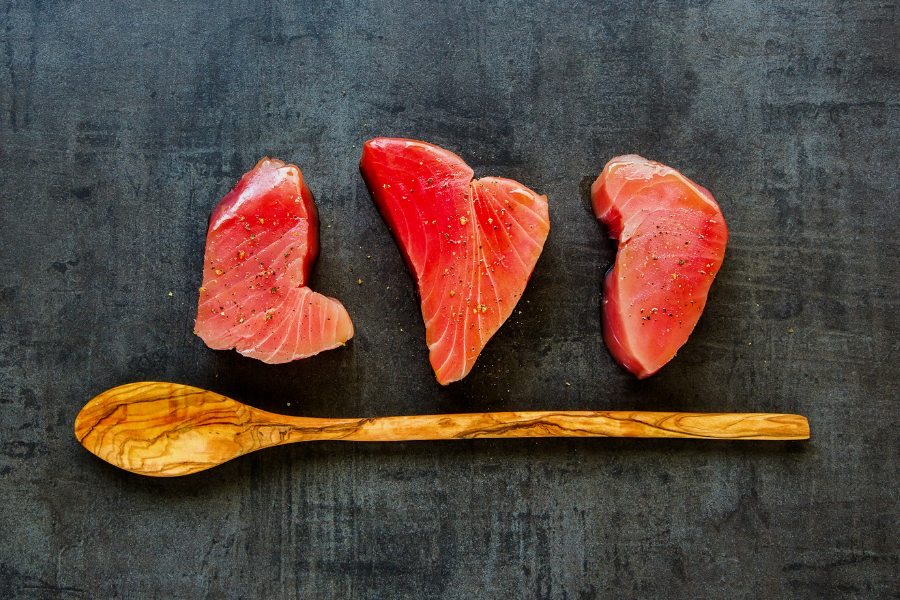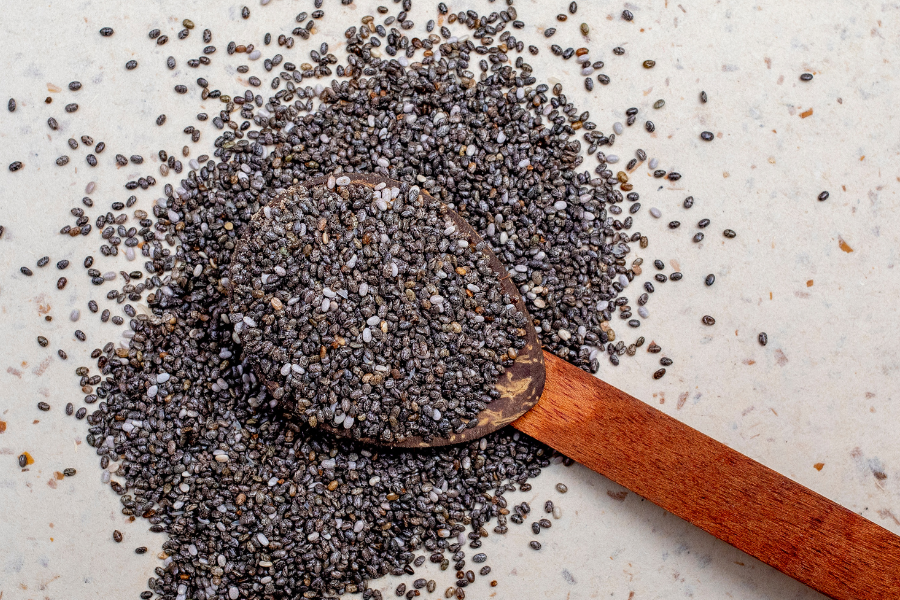Hey there, fellow pooch parents! You know, the other day I was in my kitchen, staring at a can of tuna, and I thought, "Gosh, I bet my fur baby would love a nibble of this!" But then I paused... is tuna really safe for dogs? We've got the scoop for you, so let's dive paw-first into this fishy mystery. Come on, grab your leash, and let's take a wander through the fantastic world of dogs, diet, and... well, tuna! Brace yourself for a mix of expert advice and a dash of giggles!
The Tuna Temptation
Come on, who can resist tuna? It's like the superfood of the sea for us humans – loaded with omega-3 fatty acids, lean proteins, and a boatload of essential vitamins. Now, I know the thought of sharing this with your fluffy sidekick is tempting, but hang on to your dog leash! Tuna might pack a serious nutritious punch for us, but is it a healthy snack for our furry buddies? Now that's the million-dollar question!
Why Dogs Love Tuna
Dogs just can't resist the sizzle of that savory tuna scent (and neither can I, let's e honest). It's like kibble-catnip to them, turns even the most chilled-out rovers into tail-wagging party animals! But let's face it, is this tuna-crush a one-way street or can it be a part of their healthy chow-down routine?
The Nutritional Perks of Tuna
Believe it or not, tuna is a powerhouse of nutrients such as:
Protein
Your dog got gym goals? Protein is king for muscle building and recovery.
Omega-3 Fatty Acids
Want your dog's coat to gleam? Omega-3s are the ticket! Plus, they're great inflammation busters and brain booster buddies!
B Vitamins
These are the superheroes for energy production and immune system warriors.
But hold up, before you pile on the tuna onto your dog’s plate, there are a few things you need to bear in mind.
The Concerns with Feeding Tuna to Dogs
Mercury Levels
One of the biggest concerns with tuna and any other fish is its mercury content. Tuna, especially larger species like albacore and bluefin (they are the big dogs in the tuna world), tend to accumulate higher levels of mercury because of their long lifespans and position in the food chain. High mercury levels are obviously no good for humans or for dogs, and they can be toxic, leading to health issues in dogs, such as:
- Neurological problems
- Kidney damage
- Digestive disturbances
Salt Content
Majority of canned tuna is basking in saltwater or oil, tossing a sodium party for your pup's food bowl. But too much of this party can leave your fur baby parched (yes, that's dehydration) and in serious situations, it's like inviting sodium ion poisoning over for dinner. Yikes, right? We agree.
Risk of Allergies
Now, onto the allergen alarm. Just like us, dogs can get allergic reactions to new food too. But with tuna, some dogs might just go "Nope!" You might see your precious pup scratching more, swelling up, having an upset tummy, or in more extreme cases, having a hard time breathing. So, it's always a good idea to keep an eye out when introducing new grub to their diet.
Guidelines for Feeding Tuna to Your Dog
Before you decide to give your pup a taste of the sea, consider these guidelines to ensure their safety and health:
Moderation is Key
If you choose to feed your dog tuna, do it in moderation. Small, occasional amounts are usually ok for dogs. Make it a special treat, not a regular thing.
Choose the Right Type
Opt for the types of tuna varieties with lower mercury levels (typically smaller varieties) such as skipjack or yellowfin. Additionally, select tuna packed in water without added salt or flavors. This limits sodium intake for your dog and minimizes the risk of allergies.
Cook It Right
Cooking fresh tuna thoroughly can eliminate parasites and reduce the risk of foodborne illnesses - yes, dogs can get them too! Avoid feeding raw tuna to your dog.
Monitor Your Dog's Reaction
After introducing tuna, make sure you observe your dog closely weird or adverse reactions. If adverse symptoms occur, discontinue feeding tuna to your dog ASAP and consult your veterinarian.
Alternative Fish Options
Hey, if you're a bit unsure about dishing up tuna for your canine pal, no worries, I got some other fishy alternatives lined up for you. They're packed with the same healthy perks but with way less mercury scare.
Let's start with salmon, your dog's gonna love it! It's swimming with omega-3 fatty acids. Just remember to cook it properly before serving, we don't want any parasite problems, do we?
A lot of dogs, including ours, love mackerel (which is technically considered a blue fish).
Next, we got sardines. They're low on the mercury scale and shot to the gills with nutrients. Pretty sure your dog will find these little guys incredibly delicious.
Or, how about whitefish? It's got a pleasingly mild flavor that dogs love, plus it's super easy for them to digest and bursting with nutrients.
Homemade Tuna Treat Recipe
Ready to spoil your furry friend with some homemade goodness? Let's dive in and whip up a batch of these drool-worthy tuna treats! They're super simple to make and packed with flavors that'll make your pup's tail wag like crazy.
Ingredients:
- 1 can of tuna in water (drained)
- 1 cup of whole wheat flour
- 1 egg
- 1 tablespoon olive oil
- 2 tablespoons of water (or as needed)
Instructions:
- Preheat your oven to 350°F (175°C).
- In a bowl, mix the drained tuna and egg until well combined.
- Stir in the olive oil and gradually add the flour until you've got a nice dough going.
- If the dough is too thick or dry, add a tablespoon of water at a time until it reaches a firm, but rollable, consistency.
- Roll out the dough on a floured surface to about 1/4 inch thick. Use a small bone-shaped cookie cutter (or any fun shape you like) to cut out the treats.
- Place the treats on a baking sheet lined with parchment paper.
- Pop them in the oven and bake for 15-20 minutes, or until they're golden brown and slightly crunchy.
- Let them cool completely before letting your eager taste-tester have a go!
There you have it — a pawsitively perfect treat for your canine companion! Don't forget to store them in an airtight container, and offer them to your pup in moderation.
Conclusion
To sum things up, yes, your dog can totally score some tuna, but the key is to do it tactfully! Be sure to pick the right type tuna, dish it out in small amounts, and keep an eagle eye on your pup's reaction. You can also try some other fish (that are lower in mercury content) like salmon or sardines if tuna is not your dog's jam!
Whenever you are thinking about mixing up your fur baby's diet, have a chat with your vet first, just to be sure their taste buds aren't the only thing that's catered for.
FAQ
Can your pooch nibble on some tuna?
Sure thing! Most dogs can have a bit of tuna, but remember, every dog is different so you might want to keep an eye out for any funny business (like reactions or allergies). Start small, folks!
How often should your doggy dine on tuna?
Think of tuna as a special occasion kind of treat. We don't want our pups dealing with mercury issues, so let's keep it light and sporadic.
What to do if your buddy has a bad reaction to tuna?
If you spot something off like itching, swelling, or tummy troubles after a tuna treat, hit the pause button right away and call your vet. They'll know what to do.
Is it cool for dogs to eat canned tuna?
Canned tuna can be a quick fix, but be picky! Go for the ones packed in water, without any extra salt or flavors. And of course, remember the golden rule - everything in moderation.
What if tuna's not your dog's cup of tea?
No worries, there are plenty alternatives! Try fish with less mercury like salmon, sardines, or whitefish. They're just as nutritious, and your dog might find them even tastier. Just make sure they're deboned and cooked properly before serving.
References
1) Sires RA, Fascetti AJ, Puschner B, Larsen JA. Determination of Total Mercury and Methylmercury Concentrations in Commercial Canine Diets. Top Companion Anim Med. 2019 Jun;35:6-10. doi: 10.1053/j.tcam.2019.02.002. Epub 2019 Feb 28. PMID: 31122689.



